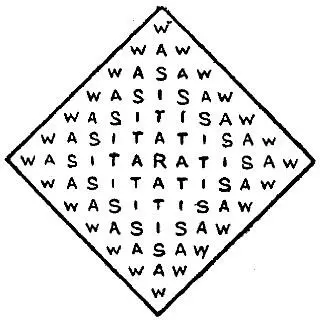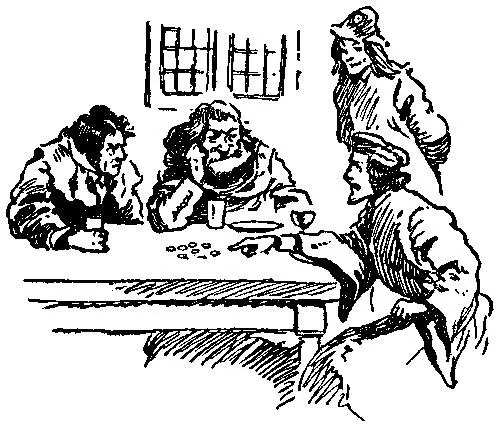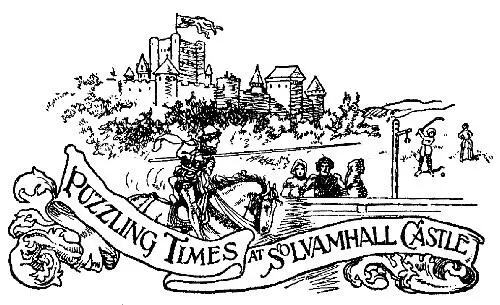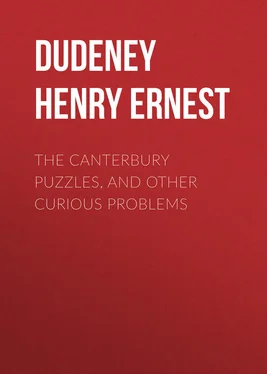Henry Dudeney - The Canterbury Puzzles, and Other Curious Problems
Здесь есть возможность читать онлайн «Henry Dudeney - The Canterbury Puzzles, and Other Curious Problems» — ознакомительный отрывок электронной книги совершенно бесплатно, а после прочтения отрывка купить полную версию. В некоторых случаях можно слушать аудио, скачать через торрент в формате fb2 и присутствует краткое содержание. Жанр: foreign_prose, foreign_antique, на английском языке. Описание произведения, (предисловие) а так же отзывы посетителей доступны на портале библиотеки ЛибКат.
- Название:The Canterbury Puzzles, and Other Curious Problems
- Автор:
- Жанр:
- Год:неизвестен
- ISBN:нет данных
- Рейтинг книги:4 / 5. Голосов: 1
-
Избранное:Добавить в избранное
- Отзывы:
-
Ваша оценка:
- 80
- 1
- 2
- 3
- 4
- 5
The Canterbury Puzzles, and Other Curious Problems: краткое содержание, описание и аннотация
Предлагаем к чтению аннотацию, описание, краткое содержание или предисловие (зависит от того, что написал сам автор книги «The Canterbury Puzzles, and Other Curious Problems»). Если вы не нашли необходимую информацию о книге — напишите в комментариях, мы постараемся отыскать её.
The Canterbury Puzzles, and Other Curious Problems — читать онлайн ознакомительный отрывок
Ниже представлен текст книги, разбитый по страницам. Система сохранения места последней прочитанной страницы, позволяет с удобством читать онлайн бесплатно книгу «The Canterbury Puzzles, and Other Curious Problems», без необходимости каждый раз заново искать на чём Вы остановились. Поставьте закладку, и сможете в любой момент перейти на страницу, на которой закончили чтение.
Интервал:
Закладка:
"The sun from the south line was descended so low that it was not to my sight more than twenty-nine degrees. I calculate that it was four o'clock, for, assuming my height to be six feet, my shadow was eleven feet, a little more or less. At the same moment the moon's altitude (she being in mid-Libra) was steadily increasing as we entered at the west end of the village." A correspondent has taken the trouble to work this out, and finds that the local time was 3.58 p.m., correct to a minute, and that the day of the year was the 22nd or 23rd of April, modern style. This speaks well for Chaucer's accuracy, for the first line of the Tales tells us that the pilgrimage was in April—they are supposed to have set out on 17th April 1387, as stated in No. 23.
Though Chaucer made this little puzzle and recorded it for the interest of his readers, he did not venture to propound it to his fellow-pilgrims. The puzzle that he gave them was of a simpler kind altogether: it may be called a geographical one. "When, in the year 1372, I did go into Italy as the envoy of our sovereign lord King Edward the Third, and while there did visit Francesco Petrarch, that learned poet did take me to the top of a certain mountain in his country. Of a truth, as he did show me, a mug will hold less liquor at the top of this mountain than in the valley beneath. Prythee tell me what mountain this may be that has so strange a property withal." A very elementary knowledge of geography will suffice for arriving at the correct answer.
30 Конец ознакомительного фрагмента. Текст предоставлен ООО «ЛитРес». Прочитайте эту книгу целиком, купив полную легальную версию на ЛитРес. Безопасно оплатить книгу можно банковской картой Visa, MasterCard, Maestro, со счета мобильного телефона, с платежного терминала, в салоне МТС или Связной, через PayPal, WebMoney, Яндекс.Деньги, QIWI Кошелек, бонусными картами или другим удобным Вам способом.
.— The Puzzle of the Canon's Yeoman
This person joined the party on the road. "'God save,' quoth he, 'this jolly company! Fast have I ridden,' saith he, 'for your sake, Because I would I might you overtake, To ride among this merry company.'" Of course, he was asked to entertain the pilgrims with a puzzle, and the one he propounded was the following. He showed them the diamond-shaped arrangement of letters presented in the accompanying illustration, and said, "I do call it the rat-catcher's riddle. In how many different ways canst thou read the words, 'Was it a rat I saw?'" You may go in any direction backwards and forwards, upwards or downwards, only the successive letters in any reading must always adjoin one another.

31 Конец ознакомительного фрагмента. Текст предоставлен ООО «ЛитРес». Прочитайте эту книгу целиком, купив полную легальную версию на ЛитРес. Безопасно оплатить книгу можно банковской картой Visa, MasterCard, Maestro, со счета мобильного телефона, с платежного терминала, в салоне МТС или Связной, через PayPal, WebMoney, Яндекс.Деньги, QIWI Кошелек, бонусными картами или другим удобным Вам способом.
.— The Manciple's Puzzle
The Manciple was an officer who had the care of buying victuals for an Inn of Court—like the Temple. The particular individual who accompanied the party was a wily man who had more than thirty masters, and made fools of them all. Yet he was a man "whom purchasers might take as an example How to be wise in buying of their victual."
It happened that at a certain stage of the journey the Miller and the Weaver sat down to a light repast. The Miller produced five loaves and the Weaver three. The Manciple coming upon the scene asked permission to eat with them, to which they agreed. When the Manciple had fed he laid down eight pieces of money and said with a sly smile, "Settle betwixt yourselves how the money shall be fairly divided. 'Tis a riddle for thy wits."
A discussion followed, and many of the pilgrims joined in it. The Reve and the Sompnour held that the Miller should receive five pieces and the Weaver three, the simple Ploughman was ridiculed for suggesting that the Miller should receive seven and the Weaver only one, while the Carpenter, the Monk, and the Cook insisted that the money should be divided equally between the two men. Various other opinions were urged with considerable vigour, until it was finally decided that the Manciple, as an expert in such matters, should himself settle the point. His decision was quite correct. What was it? Of course, all three are supposed to have eaten equal shares of the bread.

PUZZLING TIMES AT SOLVAMHALL CASTLE

Everybody that has heard of Solvamhall Castle, and of the quaint customs and ceremonies that obtained there in the olden times, is familiar with the fact that Sir Hugh de Fortibus was a lover of all kinds of puzzles and enigmas. Sir Robert de Riddlesdale himself declared on one occasion, "By the bones of Saint Jingo, this Sir Hugh hath a sharp wit. Certes, I wot not the riddle that he may not rede withal." It is, therefore, a source of particular satisfaction that the recent discovery of some ancient rolls and documents relating mainly to the family of De Fortibus enables me to place before my readers a few of the posers that racked people's brains in the good old days. The selection has been made to suit all tastes, and while the majority will be found sufficiently easy to interest those who like a puzzle that is a puzzle, but well within the scope of all, two that I have included may perhaps be found worthy of engaging the attention of the more advanced student of these things.
32 Конец ознакомительного фрагмента. Текст предоставлен ООО «ЛитРес». Прочитайте эту книгу целиком, купив полную легальную версию на ЛитРес. Безопасно оплатить книгу можно банковской картой Visa, MasterCard, Maestro, со счета мобильного телефона, с платежного терминала, в салоне МТС или Связной, через PayPal, WebMoney, Яндекс.Деньги, QIWI Кошелек, бонусными картами или другим удобным Вам способом.
.— The Game of Bandy-Ball
Bandy-ball, cambuc, or goff (the game so well known to-day by the name of golf), is of great antiquity, and was a special favourite at Solvamhall Castle. Sir Hugh de Fortibus was himself a master of the game, and he once proposed this question.
They had nine holes, 300, 250, 200, 325, 275, 350, 225, 375, and 400 yards apart. If a man could always strike the ball in a perfectly straight line and send it exactly one of two distances, so that it would either go towards the hole, pass over it, or drop into it, what would the two distances be that would carry him in the least number of strokes round the whole course?
Читать дальшеИнтервал:
Закладка:
Похожие книги на «The Canterbury Puzzles, and Other Curious Problems»
Представляем Вашему вниманию похожие книги на «The Canterbury Puzzles, and Other Curious Problems» списком для выбора. Мы отобрали схожую по названию и смыслу литературу в надежде предоставить читателям больше вариантов отыскать новые, интересные, ещё непрочитанные произведения.
Обсуждение, отзывы о книге «The Canterbury Puzzles, and Other Curious Problems» и просто собственные мнения читателей. Оставьте ваши комментарии, напишите, что Вы думаете о произведении, его смысле или главных героях. Укажите что конкретно понравилось, а что нет, и почему Вы так считаете.












